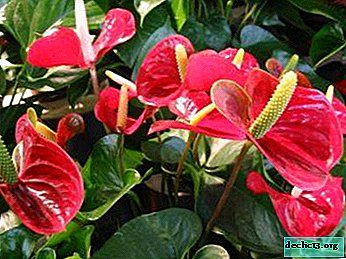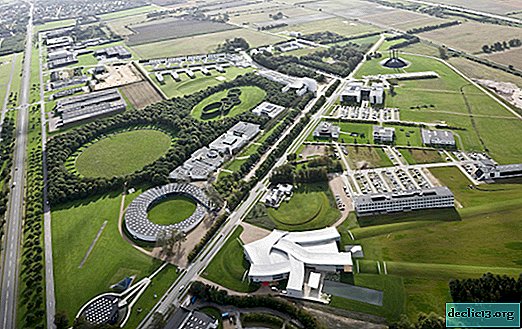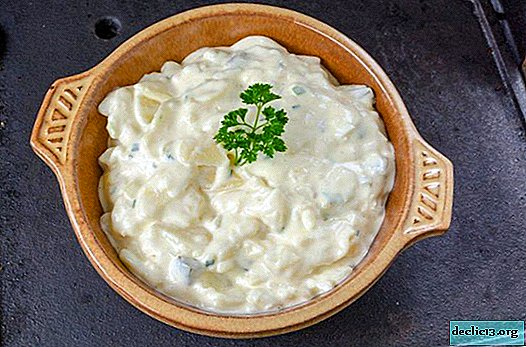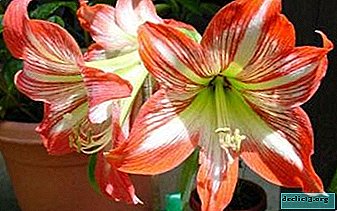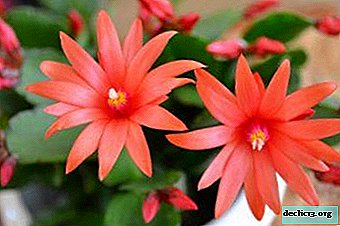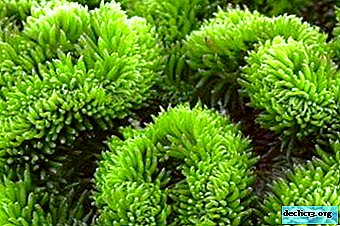All about the chemical composition, calories, benefits and harms of Jerusalem artichoke
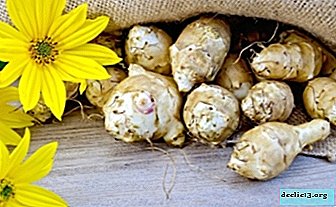
Jerusalem artichoke is a product known under many names as “tuberous sunflower”, “earthen pear” and even “Jerusalem artichoke”.
The homeland of this root crop is considered to be North America, from where it spread throughout the world.
In addition to the unusual taste, the root crop incorporates a number of useful vitamins and mineral elements. This article describes in detail the properties of the root crop.
Why is it important to know the chemical composition of the root crop?
The value of the chemical composition of the product helps not only to learn about its beneficial properties, but also warns against use if there are contraindications. There are no harmful substances in Jerusalem artichoke, but, despite this, there are contraindications to its use.
Vitamins, micro and macro elements, amino acids per 100 grams of raw product
Due to its rich composition, Jerusalem artichoke is considered very useful. It not only saturates the human body with useful elements, but also eliminates various diseases.The chemical composition of the root crop per 100 grams includes various vitamins:

- vitamin C - 4 mg;
- B vitamins - 33 mg;
- beta-carotene - 12 mcg.
Micro and macro elements, such as:
- iron - 3.4 mg;
- phosphorus - 78 mg;
- potassium - 429 mg;
- calcium - 14 mg;
- magnesium - 17 mg;
- sodium - 4 mg;
- sulfur - 15 mg;
- chlorine - 47 mg;
- iodine - 10.6 mcg;
- aluminum - 815 mcg;
- boron - 100 mcg;
- copper - 140 mcg;
- zinc - up to 290 mcg.
In addition to these elements, Jerusalem artichoke contains important amino acids:
- valine;
- leucine;
- histidine;
- threonine;
- lysine;
- alanine;
- glycine and many others.
The dependence of food and energy value on the method of preparation
Depending on the method of preparation, the beneficial properties of the root crop will change:

- Fried Jerusalem artichoke is useful in a high content of carbohydrates, also potassium, calcium, phosphorus and other components are stored in it, but their content becomes less than in a fresh product.
- Marinated. The content of chlorine and sodium increases.
- Steamed. Due to the mild heat treatment, a significant percentage of vitamins and elements are preserved in the root crop.
- Boiled It is considered incredibly useful, since with this method of cooking, useful components remain in it. Also based on it make medicinal decoctions.
- Dried. In this form, the root crop is used for the preparation of seasonings and various additives. With this type of processing, it practically does not lose its important properties.
What is the calorie content and how much BJU in 100 grams?
Jerusalem artichoke refers to low-calorie foods, so it is often consumed during diets. KBZhU root crop per 100 grams is:
- carbohydrates - 12.9 g;
- proteins - 2.1 g;
- fats - 0.1 gr.
That is, in 100 grams of Jerusalem artichoke, there are only 61 kilocalories.
Jerusalem artichoke is considered nutritious and beneficial for digestion due to its fiber and pectin.Calorie dishes from Jerusalem artichoke:
- Marmalade. The main advantage of this dish is that it is prepared without the addition of sugar. In 100 g of product, about 300 kcal is obtained.
- Candied fruit. Calories per 100 g - 330 kcal, carbohydrates - 73, proteins - 8. Fats in this dish are practically absent, so they can replace sweets during the diet.
- Salads. Such a salad is considered very healthy and dietary. Per 100 g of calories - 93, carbohydrates - 10, protein - 2.27 g, and fat is only 5 grams.
- Beverages. Not only medicinal decoctions can be prepared from the root crop, but also teas and juices. Such drinks help to improve health and have a low percentage of calories. For 100 g, about 60 kcal.
- Stew with Jerusalem artichoke. The recipe can be varied by adding any additional vegetables. In this case, the calorie content will depend on all the ingredients of the dish.
The chemical composition of earthen pear is superior to such root crops as carrots, beets, potatoes and turnips.
Benefits, harms and possible contraindications
Due to the high content of various elements in the chemical composition of Jerusalem artichoke, it has a large number of useful properties:

- lowers blood sugar;
- cleanses the body of toxins;
- improves the gastrointestinal tract;
- lowers blood pressure;
- normalizes the digestive tract;
- lowers cholesterol;
- removes excess salts;
- increases hemoglobin;
- normalizes fat metabolism;
- prevents the formation of blood clots;
- strengthens the immune system;
- improves skin condition;
- helps to lose weight.
The main ones include:
- individual intolerance;
- tendency to increased gas formation.
Doctors do not recommend consuming large quantities of root crops per day, since it contains 8 amino acids that are difficult to digest in the human body.
Jerusalem artichoke is an amazing plant that not only improves health, but also is a delicious addition to many dishes. By entering it into your diet, you can forever forget about many diseases. The main thing is to know the measure in the daily consumption of root crops and take into account the characteristics of your body.
Useful video
We suggest watching a video about the benefits of Jerusalem artichoke and the precautions for its use:



